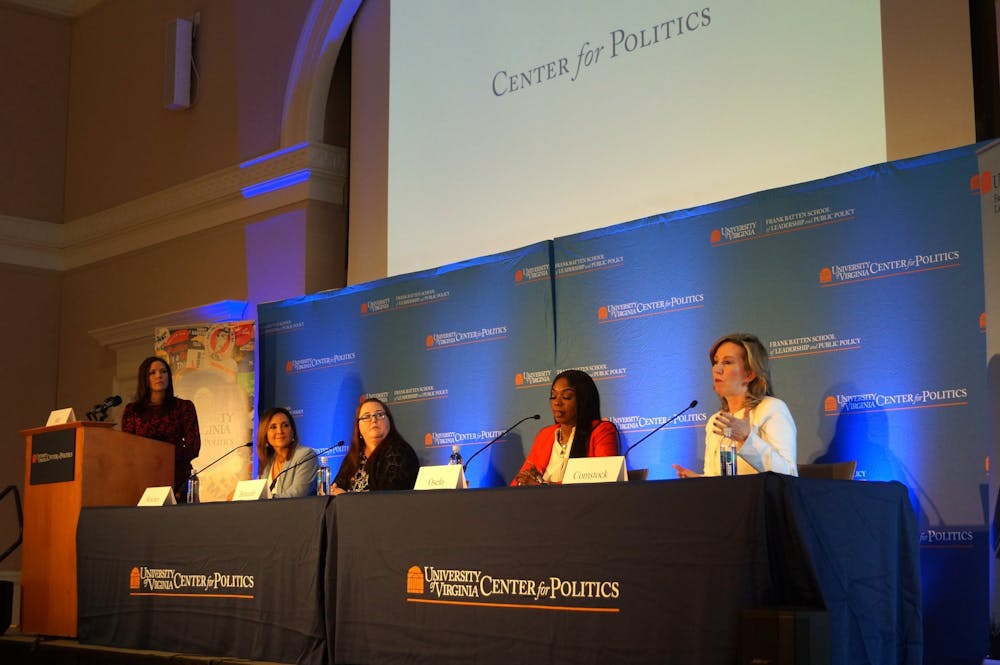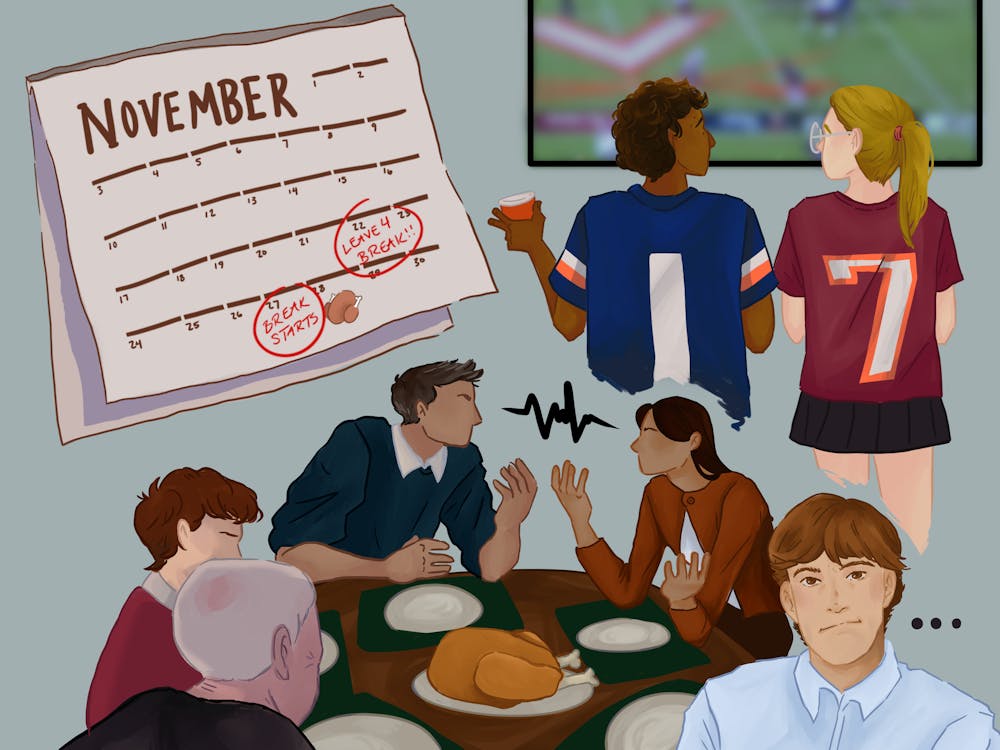The University’s Center for Politics hosted its 21st annual Democracy Conference Wednesday in the Newcomb Ballroom, featuring a variety of speakers, including political commentators, news anchors and former representatives. The event, founded by Professor Larry Sabato, director of the Center for Politics, is part of “Democracy in Perilous Times: Unprecedented Challenges and Controversies” — an ongoing series organized by the Center and the Frank Batten School of Leadership and Public Policy.
Sabato welcomed attendees to the event with a few comments on the ongoing impeachment trial in the Senate before announcing the speakers to come — all of whom were women — to celebrate the 100th anniversary of women’s suffrage.
“We can still make a little history now and then,” Sabato said. “I am the first and last male speaker you will be seeing today.”
The first keynote speech was delivered by Mia Love, a former representative for Utah’s 4th Congressional District who served from 2015 to 2019. Love — the first and only Republican Black woman to serve in Congress — spoke about her background as a second-generation Haitian immigrant and encouraged bipartisan discussion and dialogue.
“The civil breakdown and the tear down of each other, I believe, will be our undoing,” Love said. “We are a greater threat to ourselves than other entities out there.”
Love championed individual action and responsibility, which she believes offers the best pathway to effecting political change. The speech closed with her vision for the future of federal government — one in which Congress is limited to its Article One powers and the Executive is limited to Article Two.
Erica Hill, lead fill-in anchor and national correspondent for CNN, moderated the following panel. The panel featured Rachel Bitecofer, assistant director of the Wason Center for Public Policy at Christopher Newport University, Barbara Comstock, former Virginia Congressional representative and recently appointed resident scholar at the Center, Wendy Osefo, professor of education at The Johns Hopkins University and Leslie Sanchez, a Republican political pundit.
The panel opened with a discussion of gender in politics, which Hill noted was a pertinent topic due to a recent alleged report that democratic presidential candidate and Vermont Senator Bernie Sanders said a woman could not win the presidency. Sanders disputed the report, calling it “ludicrous.”
Osefo noted that in order to make sure women’s voices are heard, they need to be at the table.
“One of the notions I hate the most is when people say … ‘I want to be a voice for the voiceless,’” Osefo said. “No, just pass the mic.”
The discussion turned to electability for female candidates and the gender penalty — a phenomenon whereby women running for office are assessed differently than their male counterparts. All panelists agreed that the bar for political candidacy is much lower for men than it is for women.
After the panel’s conclusion, Kathleen Kennedy Townsend delivered the final keynote address. Townsend, the eldest child of Ethel and Robert Kennedy, currently serves as director of Retirement Security at the Economic Policy Institute and, from 1995 to 2003, served as Maryland’s first female lieutenant governor.
Townsend spoke on women in politics as well as retirement, noting that half of all jobs in the United States don’t offer a retirement plan.
“I talked to all the presidential candidates, and three have a plan [for retirement security], and none of them talk about it,” Townsend said.
Townsend closed her presentation by asking for questions from the audience, with one asking her when she believes a Maryland will elect its first female governor — a question to which she answered an estimated 15 years.





